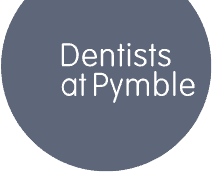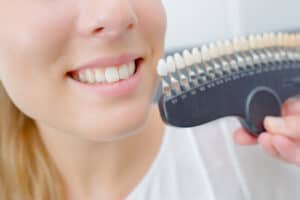 What You Need to Know About Missing Teeth and More
What You Need to Know About Missing Teeth and More
We use our teeth every day.
When you think about it… we use our teeth more than we use our cars.
Teeth help us to eat and chew, to swallow and to speak.
But teeth also play a significant role in our appearance.
They help give shape to the face but importantly, they complement our smile.
So, when someone is missing a tooth, multiple or all their teeth, it can seriously affect their quality of life. That is why they may want to find a way to replace their missing or lost teeth. However, when it comes to replacing teeth, there is more than one way.
In this article, we are going to talk about why people may be missing a tooth or multiple teeth. As, at Dentists at Pymble, we know there can be many reasons. We will then consider the consequences and impact that missing teeth can have for someone. Finally, we touch on a few of the treatment options which may be available for someone who wishes to fix a gap in their smile.
So, if you are wondering how you can replace missing teeth or to close a gap in your smile then please read on!
Why are people missing teeth?
There are many reasons which may cause someone to lose a tooth, multiple or all their teeth.
Sometimes teeth are lost due to dental decay (holes), cracks, infections, or advanced gum disease, known as periodontal disease.
Teeth can also be lost due to trauma or an accident. In such an event, teeth may be knocked out or can be severely damaged, that unfortunately cannot be saved.
Sometimes though teeth are missing due to developmental or congenital abnormalities. Did you know some people are missing teeth because they just never formed? It is true… and it is called hypodontia.
So, at Dentists at Pymble, when we see that someone is missing a tooth or teeth, often we will ask them how it was lost.
We do this because it helps us to understand their dental history. It also helps us to evaluate their risk factors for dental disease in the future.
Do all lost and missing teeth need to be replaced?
No. Whether you chose to replace lost and missing teeth is entirely personal preference.
At, Dentists at Pymble, we find that some people come in wanting to discuss treatment options to replace missing teeth… as they miss them! Other times people are unconcerned and instead, we bring it up.
Why do we bring it up you ask?
For two reasons…
First, we like to make sure that you know and understand that you have replacement options. Sometimes people don’t even realise all the options that they have.
Secondly, we like to ensure that you have all the information to be able to make an informed decision about your dental health. This means understanding and considering the short- and long-term implications of treating versus not treating.
Trust us… there is nothing worse for patients than finding out that they have had options this whole time and they didn’t know it.
Or worse… to find out that there are now limited options available because the space has been compromised because they didn’t do anything sooner.
So, is there any risk or consequences in choosing not to replace missing teeth?
Yes, unfortunately, there is. And missing teeth can affect everyone differently.
First of all, missing teeth can significantly impact the health and functioning of the whole mouth. The best way to explain this is by a few examples.
So, here are a few examples:
- If a lower tooth is missing, then the tooth above may start to over-erupt.
This means that the top tooth may start to grow or move down, as there is no force from below stopping it. - Alternatively, if a tooth is missing, then the teeth beside it may over time start to drift, fall or lean into the empty space.
At Dentists at Pymble, we have a great analogy that we commonly use to explain this…
“…consider you have a bookshelf full of books and you take out the middle book… suddenly by removing the book, you will see that the books on each side will lean inwards to the space where the book was…”
The same concept can apply to your teeth – only that it generally happens over a longer period of time.
- The last example is that when teeth are missing it can place extra force, load or stress on the other remaining teeth.
This is because the other teeth are now having to compensate for the missing tooth or teeth, and are having to work extra hard now.
These are just a few examples of how missing teeth can affect the functioning and health of your whole mouth. But when these things happen it can start to make replacement options a little more difficult, complicated or costly… as now there are multiple things to fix!
But… missing teeth can also have more obvious consequences.
When teeth are missing it can affect speech. It can change how and what we eat, which can then impact one’s diet and nutrition.
Finally, missing teeth can also greatly affect someone’s confidence and self-esteem.
Suddenly, people don’t want to smile, as they are embarrassed. And for us, at Dentists at Pymble, this breaks our heart as we think everyone deserves to smile!
How can a gap where a tooth once was be fixed?
Like most of the modern world, dentistry too has advanced… and it has come a long way! This means that there are now a few ways to replace teeth or ways to close a gap in someone’s smile due to missing teeth.
So, when it comes to your options, first your oral health professional will need to consider a few things. This includes:
- The number of missing teeth
- The position of the missing tooth/teeth
- The surrounding teeth, bone and your bite (occlusion)
- Your oral health status
- Your medical and dental history
- Your age
Once these aspects have been considered, your oral health professional will be able to explain to you what your options are. They should also explain to you the advantages and disadvantages of each. But most importantly, they will be able to chat to you about the costs of each.
Here are a few of the options your oral health professional may recommend:
- Orthodontics
- Depending on when the tooth was lost and the size of the space, sometimes orthodontics can be used to help move teeth to close the space.
- However, this is a more common treatment option for younger patients.
- Dental Implants
- Dental implants are becoming a more common tooth replacement option.
- It involves surgically placing a screw into the jaw, which acts as an artificial root. Once it has integrated and fused with the bone it creates a stable platform allowing an artificial tooth or teeth to be attached.
- Sometimes, more than one implant can be placed into the jawbone, allowing a framework to support a denture.
- Dental Bridge
- A dental bridge is a fixed dental prosthesis, which can replace one or more missing teeth.
- A bridge is made by suspending artificial teeth/teeth, to either one or both, of the natural teeth on either side of the gap.
- Dentures
- Dentures often referred to as false teeth, are a removable dental appliance.
- Dentures are designed to look like your natural teeth and can be used to replace one, multiple or all the teeth in an arch.
- Doing Nothing
-
- Doing nothing and not treating is always a treatment option that you have.
- If you choose to do nothing, then seeing your dental professional to monitor the space can be a good idea. That way, if things do start to change, they can let you know before it is too late.
So, if you are about to lose a tooth or teeth, or if you are considering tooth replacement options to close a gap in your smile, it is always best to speak directly to your dentist.
They will be able to ensure that you have all the information about each option to be able to make an informed decision which is right for your oral health.
From the team, at Dentists at Pymble, we hoped this information has been helpful to you. However, if you have any further questions or if you would like more detail about options to replace missing teeth, then please do not hesitate to arrange an appointment with one of our friendly team members by calling us on 02 9488 7555. We look forward to hearing from you soon!
Take home message:
- There are many reasons as to why someone may be missing a tooth or teeth.
- Missing teeth can affect someone’s ability to eat and swallow. It can also impact their speech and their self-esteem as well
- When there is a missing tooth or teeth, it can affect the whole mouth health and function. For example, other teeth may over-erupt or start to drift or lean into the space of the missing tooth.
- There are a few ways to replace teeth and to close a space where a tooth once was.
This may include orthodontics, implants, dental bridges, and dentures. - Whether you choose to replace missing and lost teeth is your choice, as long as you have been made aware of the risks, advantages and disadvantages to be able to make an informed decision.
References:
- Dosumu OO, Ogunrinde JT, Bamigboye SA. Knowledge of consequences of missing teeth in patients attending prosthetic clinic in U.C.H. Ibadan. Ann Ibd Pg Med. 2014;12(1):42-48.
- Rosseau N, Steele J, May C, Exley C. ‘Your whole life is loved through your teeth’: biographical disruption and experiences of tooth loss an replacement. Sociology of Health and Illness. 2014;36(3):462-476.
- El-Kalla IH, Shalan HM, Bakr RA. Impact of dental trauma on quality of life among 11-4 years school children. Contemp Clin Dent. 2017;8(4):538-544.
- Al-Ani AH, Antoun JS, Thomson WM, Merriman TR, Farella M. Hypodontia: an update on its aetiology, classification, and clinical management. BioMed Research International. 2017:9378325.
- Craddock HL. Consequences of tooth loss: 2. Dentist considerations – restorative problems and implications. Restorative Dentistry Dent Update. 2010;37:23-32
- Australian Dental Association. Crown and bridges. 2010. Edition 2.
- Alshammari MS, Alshammaria AS, Siddiqui AA, Mirza AJ, Mian RI. Patients’ knowledge and perceived barriers toward replacement of missing teeth among respondents of Hail City, Kingdom of Saudi Arabia. Journal of Contemporary Dental Practice. 2018;19(1):86-89.
- Gbadebo OS, Lawal FB, Sulaiman AO, Ajayi DM. Dental implant as an option for tooth replacement: the awareness of patients at tertiary hospital in a developing country. Contemp Clin Dent. 2014;5(3):302-306
- Foauda SM, Al-Harbi FA, Khan SQ, Virtanen JI, Raustia A. Missing teeth and prosthetic treatment in patients treated at college of dentistry, University of Dammam. International Journal of Dentistry. 2017;793540:6
- Alajlan A, Alhoumaidan A, Ettesh A, and Doumani M. Assessing knowledge and attitude of dental patients regarding the use of dental implants: a survey-based research. Inter J of Dent. 2019;5792072.
- Australian Dental Association. Dentures. 2019. URL:’ https://www.ada.org.au/Your-Dental-Health/Older-Adults-65/Dentures’. Accessed: 16 February 2020.

 What You Need to Know About Missing Teeth and More
What You Need to Know About Missing Teeth and More